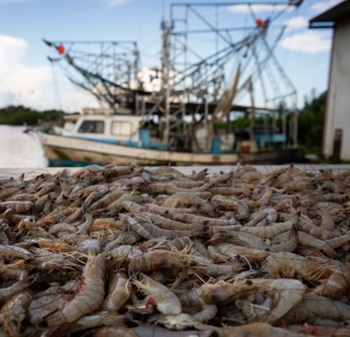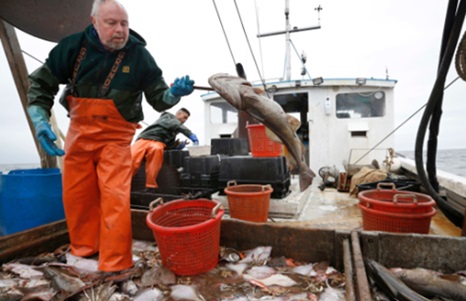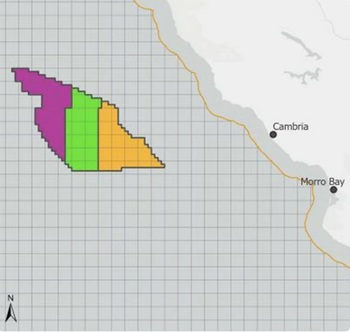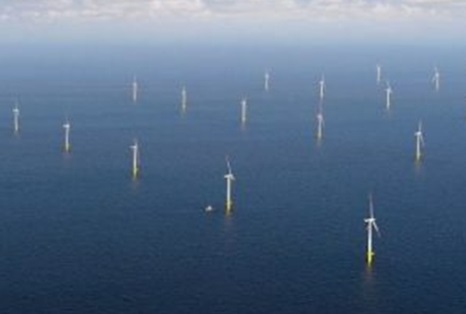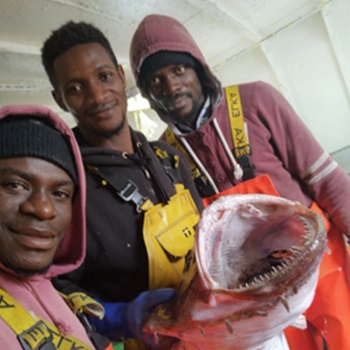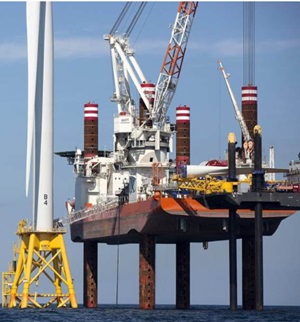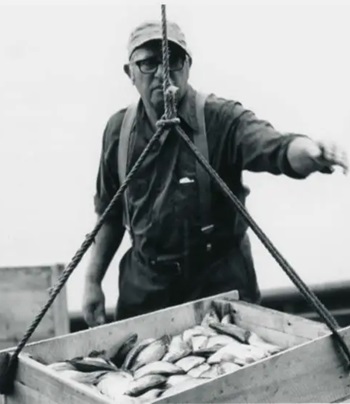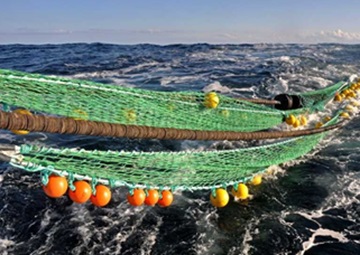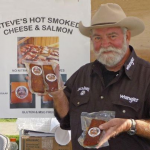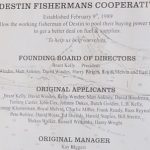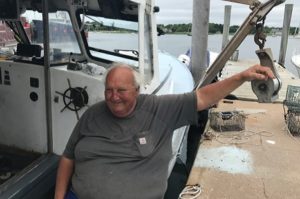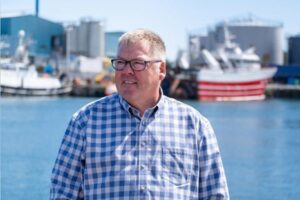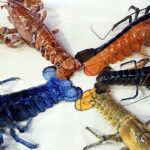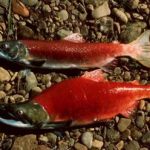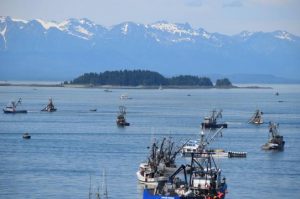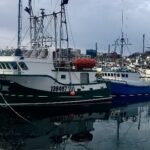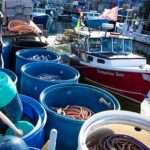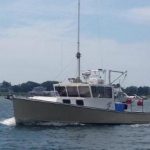Tag Archives: commercial fishermen
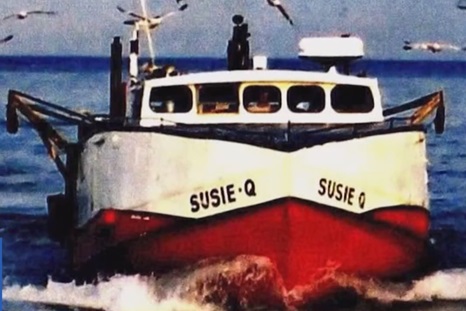
‘We need it desperately’: Great Lakes Commercial Fishermen look for help as industry shrinks
Commercial fishing on the Great Lakes began 150 years ago, and fishermen once numbered in the thousands. Now, only a handful of businesses are still at it, and many are aging out and looking for help. Jamie LeClair represents the fifth generation involved in her family-run commercial fishing business. Titus Seilheimer, a fisheries specialist for the Wisconsin Sea Grant, said the industry needs to start training the next generation of commercial fishermen. “There are concerns. A lot of folks I work with are getting older, and the fleet is getting grayer,” said Seilheimer. “That’s an issue here in the Great Lakes, but really any fishery.” Video, more, >>CLICK TO READ<< 12:57
Maine lobstermen struggle to adapt to new electronic reporting rules. Their licenses are on the line.
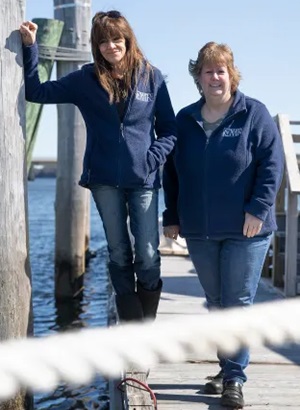 Alice Mayberry and Sue Kelley spend most of their days talking to lobstermen about what they’ve hauled in. Mayberry is riffling through paper logs. Kelley is texting until 9 p.m. Then, they both log onto the Maine Department of Marine Resources’ database and plug in what the lobstermen did for the day. Over the last several years, state and federal regulators started requiring more fishermen to report what they caught, and where. A few years ago, only a portion of harvesters needed to submit that information, and it could be sent in on a piece of paper. Now, all fishermen who harvest 15 species of fish – pogies, scallops, lobster, halibut, mussels, eels and others – have to file their landings electronically. Fishermen in Maine are gradually learning what they’re supposed to do. For lobstermen, adjusting has been particularly hard. Audio, more, >>click to read<< 15:58
Alice Mayberry and Sue Kelley spend most of their days talking to lobstermen about what they’ve hauled in. Mayberry is riffling through paper logs. Kelley is texting until 9 p.m. Then, they both log onto the Maine Department of Marine Resources’ database and plug in what the lobstermen did for the day. Over the last several years, state and federal regulators started requiring more fishermen to report what they caught, and where. A few years ago, only a portion of harvesters needed to submit that information, and it could be sent in on a piece of paper. Now, all fishermen who harvest 15 species of fish – pogies, scallops, lobster, halibut, mussels, eels and others – have to file their landings electronically. Fishermen in Maine are gradually learning what they’re supposed to do. For lobstermen, adjusting has been particularly hard. Audio, more, >>click to read<< 15:58
Stock Assessments Benefit from Rockhopper Trawl Efficiency Study
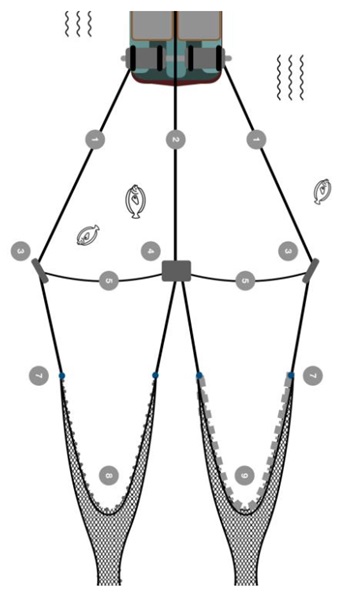 A collaborative study conducted aboard a Rhode Island-based commercial trawler from 2015 to 2017 is bearing fruit. It was led by the Northeast Fisheries Science Center and commercial fishermen interested in how catches of the same species varied depending on the type of trawl net used. Since 2019, stock assessment scientists have used the results from this Northeast Trawl Advisory Panel study in multiple stock assessments to ensure sustainable fisheries for several flounder species as well as monkfish and red hake. Specifically, the results help produce more accurate estimates of abundance which can increase the confidence in catch advice for some species. “Cooperative research is essential to obtain accurate assessments and catch advice in our nation’s fisheries,” said Chris Roebuck, former Northeast Trawl Advisory Panel member, commercial fisherman and participant in the experiment. “This research is an excellent example of collaboration between scientists and fishermen. It provided solid efficiency numbers for each targeted species,” he said. “The information produced was clearly the best available science and has the potential to ultimately influence catch advice for every species evaluated.” Photos, lots of links, more, >>click to read<< 12:29
A collaborative study conducted aboard a Rhode Island-based commercial trawler from 2015 to 2017 is bearing fruit. It was led by the Northeast Fisheries Science Center and commercial fishermen interested in how catches of the same species varied depending on the type of trawl net used. Since 2019, stock assessment scientists have used the results from this Northeast Trawl Advisory Panel study in multiple stock assessments to ensure sustainable fisheries for several flounder species as well as monkfish and red hake. Specifically, the results help produce more accurate estimates of abundance which can increase the confidence in catch advice for some species. “Cooperative research is essential to obtain accurate assessments and catch advice in our nation’s fisheries,” said Chris Roebuck, former Northeast Trawl Advisory Panel member, commercial fisherman and participant in the experiment. “This research is an excellent example of collaboration between scientists and fishermen. It provided solid efficiency numbers for each targeted species,” he said. “The information produced was clearly the best available science and has the potential to ultimately influence catch advice for every species evaluated.” Photos, lots of links, more, >>click to read<< 12:29
Inoperable weather buoys at mouth of the Columbia River stir concern
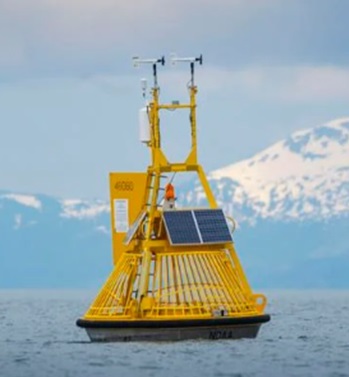 On the first day of commercial Dungeness crab season, Kelsey Cutting began his morning the way most crab fishermen do: checking the weather. Like many commercial fishermen, Cutting relies on data from weather buoys at the mouth of the Columbia River to guide his decisions. But as he’s learned, not all weather buoys are created equal — and when one goes out, there can be serious consequences. The National Oceanic and Atmospheric Administration operates two buoys at the mouth of the river that track real-time data on barometric pressure, wind direction, speed and gust, air and sea temperature, humidity and waves, which help inform National Weather Service forecasts. The buoys have been out of operation since late last year. more, >>click to read<< 15:18
On the first day of commercial Dungeness crab season, Kelsey Cutting began his morning the way most crab fishermen do: checking the weather. Like many commercial fishermen, Cutting relies on data from weather buoys at the mouth of the Columbia River to guide his decisions. But as he’s learned, not all weather buoys are created equal — and when one goes out, there can be serious consequences. The National Oceanic and Atmospheric Administration operates two buoys at the mouth of the river that track real-time data on barometric pressure, wind direction, speed and gust, air and sea temperature, humidity and waves, which help inform National Weather Service forecasts. The buoys have been out of operation since late last year. more, >>click to read<< 15:18
Maine commercial fisheries jump $25M in value, with strong boat price for lobster
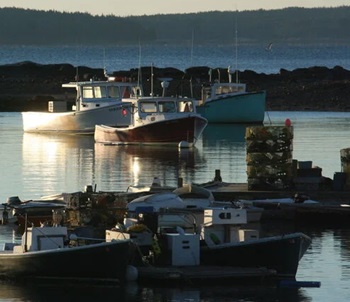 Commercial fishermen in Maine had a strong year in 2023. The value of the state’s fisheries increased by more than $25 million over 2022, for a total of $611.3 million at the dock, according to preliminary data released by the Maine Department of Marine Resources. The department attributed much of the increase to a strong boat price for lobster, Maine’s most valuable species last year. The price paid to fishermen went from $3.97 per pound in 2022 to $4.95 per pound in 2023, netting harvesters an additional $72 million compared to the previous year, for a total value in 2023 of $464.4 million. “The price Maine lobstermen received last year is a reflection of the continued strong demand for this iconic seafood,” said Patrick Keliher, the department’s commissioner. more, >>click to read<< 10:19
Commercial fishermen in Maine had a strong year in 2023. The value of the state’s fisheries increased by more than $25 million over 2022, for a total of $611.3 million at the dock, according to preliminary data released by the Maine Department of Marine Resources. The department attributed much of the increase to a strong boat price for lobster, Maine’s most valuable species last year. The price paid to fishermen went from $3.97 per pound in 2022 to $4.95 per pound in 2023, netting harvesters an additional $72 million compared to the previous year, for a total value in 2023 of $464.4 million. “The price Maine lobstermen received last year is a reflection of the continued strong demand for this iconic seafood,” said Patrick Keliher, the department’s commissioner. more, >>click to read<< 10:19
“Thar’s gold in them thar gills!” Why this Peoria fish company wants to come to Pekin
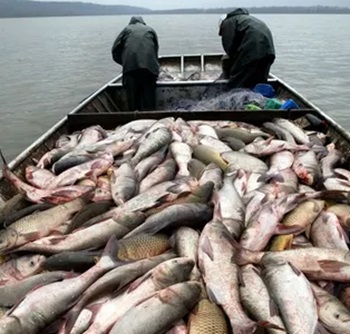 Many central Illinois residents see Asian carp as an invasive species and a hazard to public waterways. But a wholesale and retail fresh water fish processing company sees them as an opportunity and wants to set up a facility in Pekin. Vogel noted that commercial fishermen have been netting carp on the Illinois River for “quite a few years.” While those fishermen have always had access to carp processing plants, he believes Freshwater Solutions proposed Pekin facility can potentially operate on a larger scale. “It’s not just the Asian carp we’re targeting,” he said. “It’s all freshwater species in commercial fishing. What we’re trying to do is build an old industry anew right here in central Illinois.” more, >>click to read<< 08:06
Many central Illinois residents see Asian carp as an invasive species and a hazard to public waterways. But a wholesale and retail fresh water fish processing company sees them as an opportunity and wants to set up a facility in Pekin. Vogel noted that commercial fishermen have been netting carp on the Illinois River for “quite a few years.” While those fishermen have always had access to carp processing plants, he believes Freshwater Solutions proposed Pekin facility can potentially operate on a larger scale. “It’s not just the Asian carp we’re targeting,” he said. “It’s all freshwater species in commercial fishing. What we’re trying to do is build an old industry anew right here in central Illinois.” more, >>click to read<< 08:06
Commercial Fishermen in Alaska Find Suspected Spy Balloon, FBI Investigation Pending
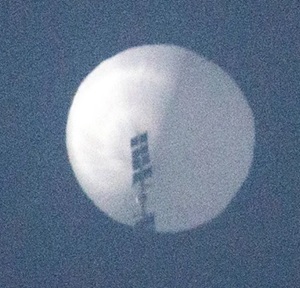 Commercial fishermen off the coast of Alaska have stumbled upon what could be a significant find—a suspected spy balloon, sparking immediate interest from U.S. officials. The object, believed to resemble those used in foreign surveillance activities, is now en route to the shore, escorted by the fishermen who discovered it. This incident has generated considerable attention, with the FBI preparing to conduct a thorough investigation upon its arrival. The unexpected discovery occurred when the fishermen noticed an unusual object floating off the coast. Initial photographs sent to local law enforcement caught the eye of federal officials, prompting an urgent request for the object to be brought to land. more, >>click to read<< 18:18
Commercial fishermen off the coast of Alaska have stumbled upon what could be a significant find—a suspected spy balloon, sparking immediate interest from U.S. officials. The object, believed to resemble those used in foreign surveillance activities, is now en route to the shore, escorted by the fishermen who discovered it. This incident has generated considerable attention, with the FBI preparing to conduct a thorough investigation upon its arrival. The unexpected discovery occurred when the fishermen noticed an unusual object floating off the coast. Initial photographs sent to local law enforcement caught the eye of federal officials, prompting an urgent request for the object to be brought to land. more, >>click to read<< 18:18
State fisheries advisory committees to review issue paper on trawling closures to protect submerged aquatic vegetation
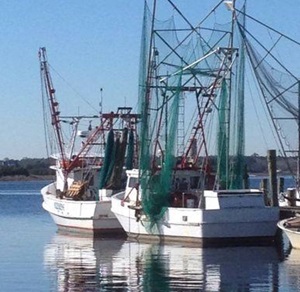 A controversial proposal that could lead to shrimp trawling area closures to protect submerged aquatic vegetation took a step toward future consideration by the N.C. Marine Fisheries Commission last week. The commission, policy-making arm of the N.C. Division of Marine Fisheries, voted during its quarterly business meeting in New Bern to refer an issue paper pertaining to the concept to its northern, southern and shellfish/crustacean advisory committees to get input from the public. Glenn Skinner, executive director of the N.C. Fisheries Association, a Morehead City-based trade and lobbying group for commercial watermen, said he and his members are concerned, in part because the state has already permanently or seasonally closed more than 1.2 million acres of estuarine waters to shrimp trawling. more, >>click to read<< 10:18
A controversial proposal that could lead to shrimp trawling area closures to protect submerged aquatic vegetation took a step toward future consideration by the N.C. Marine Fisheries Commission last week. The commission, policy-making arm of the N.C. Division of Marine Fisheries, voted during its quarterly business meeting in New Bern to refer an issue paper pertaining to the concept to its northern, southern and shellfish/crustacean advisory committees to get input from the public. Glenn Skinner, executive director of the N.C. Fisheries Association, a Morehead City-based trade and lobbying group for commercial watermen, said he and his members are concerned, in part because the state has already permanently or seasonally closed more than 1.2 million acres of estuarine waters to shrimp trawling. more, >>click to read<< 10:18
Bailouts
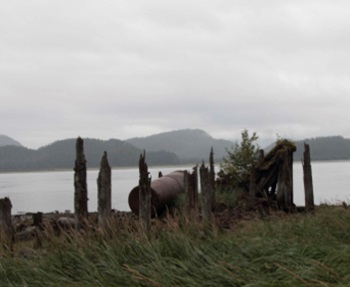 The Alaska Congressional delegation is singing praises for a new $100 million bailout of the state’s floundering commercial salmon processing business. In a joint statement from the office of Sen. Lisa Murkowski, the trio applauded the U.S. Department of Agriculture (USDA) move with the state’s senior Republican lawmaker tried to spin it as a new poverty program to provide “almost $100 million of Alaskan seafood for people experiencing food insecurity. “This purchase won’t just bolster Alaska’s seafood industry and support our coastal communities,” Murkowski was quoted as saying, “but will help bring the highest-quality and healthiest seafood products in the world to families in need. I am grateful for the USDA’s investment in our fishermen and the health of Americans.” There has been no actual “investment in our fishermen,” presuming she is talking about Alaska fishermen. But they may benefit from a deal that helps processors clean out some of their inventory before the upcoming fishing season. More, >>click to read<< 13:06
The Alaska Congressional delegation is singing praises for a new $100 million bailout of the state’s floundering commercial salmon processing business. In a joint statement from the office of Sen. Lisa Murkowski, the trio applauded the U.S. Department of Agriculture (USDA) move with the state’s senior Republican lawmaker tried to spin it as a new poverty program to provide “almost $100 million of Alaskan seafood for people experiencing food insecurity. “This purchase won’t just bolster Alaska’s seafood industry and support our coastal communities,” Murkowski was quoted as saying, “but will help bring the highest-quality and healthiest seafood products in the world to families in need. I am grateful for the USDA’s investment in our fishermen and the health of Americans.” There has been no actual “investment in our fishermen,” presuming she is talking about Alaska fishermen. But they may benefit from a deal that helps processors clean out some of their inventory before the upcoming fishing season. More, >>click to read<< 13:06
Oregon fishermen, tribes angered by surprise announcement on offshore wind energy areas
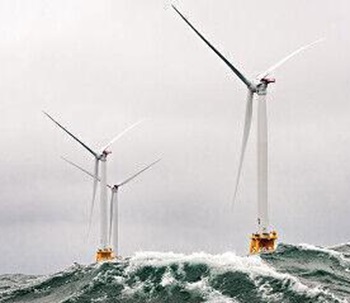 Federal officials say Oregon’s wind energy areas were developed “following extensive engagement and feedback from the state, Tribes, local residents, ocean users, federal government partners, and other members of the public” and are based on reducing conflicts with ocean users, particularly commercial fishermen. The areas avoid 98% of the locations recommended for exclusion due to their importance as commercial fishing grounds, they said. But local groups representing fishermen and Indigenous communities said that narrative is inaccurate and the federal government’s engagement with local communities was perfunctory at best, failing to take into account suggested impacts on local fishing areas, the environment and views that are sacred to tribes. The groups said the announcement caught them by surprise since Gov. Tina Kotek had asked the federal agency last June to pause identifying and leasing offshore wind areas so the state could fully evaluate potential impacts on the environment and economy. more, >>click to read<< 10:07
Federal officials say Oregon’s wind energy areas were developed “following extensive engagement and feedback from the state, Tribes, local residents, ocean users, federal government partners, and other members of the public” and are based on reducing conflicts with ocean users, particularly commercial fishermen. The areas avoid 98% of the locations recommended for exclusion due to their importance as commercial fishing grounds, they said. But local groups representing fishermen and Indigenous communities said that narrative is inaccurate and the federal government’s engagement with local communities was perfunctory at best, failing to take into account suggested impacts on local fishing areas, the environment and views that are sacred to tribes. The groups said the announcement caught them by surprise since Gov. Tina Kotek had asked the federal agency last June to pause identifying and leasing offshore wind areas so the state could fully evaluate potential impacts on the environment and economy. more, >>click to read<< 10:07
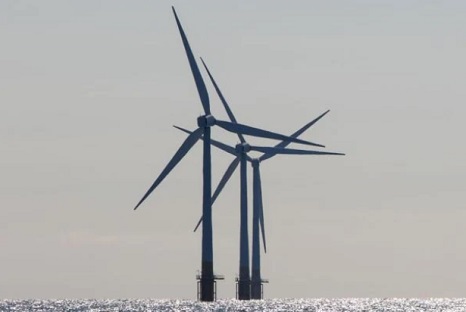
Commercial Fishers Say Biden Admin’s ‘Ocean Justice’ Initiative Totally Ignores Their Concerns
The Biden Administration announced the “ocean justice” strategy in December 2023 during the United Nations (UN) climate summit, known as COP28, in order “to advance environmental justice for communities that rely on the ocean and Great Lakes for economic, cultural, spiritual, recreational and food security purposes.” However, several stakeholders in the commercial fishing industry who depend on the fruits of America’s waters to make a living and are therefore interested in sustainable use of the oceans, say that the administration is overlooking their concerns about how the oceans are managed, especially with regard to the administration’s extensive efforts to fast track industrial scale offshore wind. more, >>click to read<< 10:19
Pollack fishing: Setting quota to zero ‘damaging’ to South-West industry
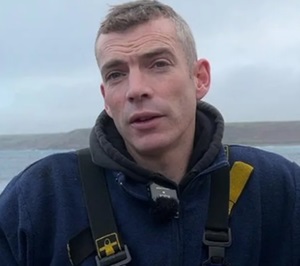 A decision to set the pollack catch quota to zero will be “damaging” to the fishing industry, those working in South-West England have said. The Department for Environment, Food & Rural Affairs (Defra) said the quota had been reduced to preserve stocks. It said it recognised the “impact” the decision “may have” and was working to “explore potential mitigations”. Ben George, who fishes from Sennen Cove in Cornwall, said he never once “dreamed it could be a total ban”. “It’s particularly damaging for the small inshore fisherman, because they can’t diversify easily now to anything else,” he said. more, >>click to read<< 06:19
A decision to set the pollack catch quota to zero will be “damaging” to the fishing industry, those working in South-West England have said. The Department for Environment, Food & Rural Affairs (Defra) said the quota had been reduced to preserve stocks. It said it recognised the “impact” the decision “may have” and was working to “explore potential mitigations”. Ben George, who fishes from Sennen Cove in Cornwall, said he never once “dreamed it could be a total ban”. “It’s particularly damaging for the small inshore fisherman, because they can’t diversify easily now to anything else,” he said. more, >>click to read<< 06:19
Bay Area business hauling in, washing boats for free as fishing industry struggles
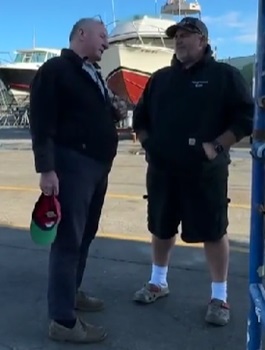 Local fishermen are getting a helping hand as they eagerly wait for the commercial Dungeness crab season. They didn’t get to fish salmon this year, and the presence of Humpback whales is delaying the crab season, causing them financial hardship. To help them, Paul Kaplan, for the first time since establishing Keefe Kaplan Maritime decades ago, is offering all Northern California fisherman hauling-in and power washing services free of charge. “They’re a vital part of our industry and supporting our craftsmen, and so I thought it was the right thing to do,” said Kaplan. Delayed starts and shortened seasons for crab fisherman have taken a toll on the livelihood of small businesses. “It’s becoming for most of us maxed credit cards and hoping that we get to go crabbing soon enough before they’re due. Everybody in the fleet is hurting,” said Brand Little. Video, more, >>click to read<< 13:11
Local fishermen are getting a helping hand as they eagerly wait for the commercial Dungeness crab season. They didn’t get to fish salmon this year, and the presence of Humpback whales is delaying the crab season, causing them financial hardship. To help them, Paul Kaplan, for the first time since establishing Keefe Kaplan Maritime decades ago, is offering all Northern California fisherman hauling-in and power washing services free of charge. “They’re a vital part of our industry and supporting our craftsmen, and so I thought it was the right thing to do,” said Kaplan. Delayed starts and shortened seasons for crab fisherman have taken a toll on the livelihood of small businesses. “It’s becoming for most of us maxed credit cards and hoping that we get to go crabbing soon enough before they’re due. Everybody in the fleet is hurting,” said Brand Little. Video, more, >>click to read<< 13:11
A group of commercial fishermen have ended up before the Supreme Court
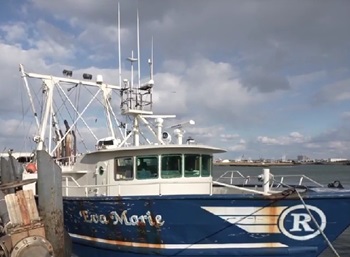 An unforgiving southeast wind cut across Cape May, New Jersey, on a recent Tuesday morning; the 50-mile-per-hour gusts were so strong they created white caps on a section of the bay here that is typically calm. There would be no fishing for Bill Bright and his crew. “We don’t have crop insurance. If the fish don’t show up, there’s no bailout,” the 64-year-old said, standing on the deck of the Eva Marie, an 88-foot-long fishing vessel used to catch herring. As a lifelong fisherman, Bright is used to slow days. But a recent shift in tidal fortunes here has nothing to do with fish and everything to do with the federal government. “What’s at stake for us is our future,” Bright said. For years, fishermen like Bill Bright and his colleague Wayne Reichle have been required to take federal observers on their boats when they set out into the North Atlantic in search of herring. Video , >>click to read<< 19:06
An unforgiving southeast wind cut across Cape May, New Jersey, on a recent Tuesday morning; the 50-mile-per-hour gusts were so strong they created white caps on a section of the bay here that is typically calm. There would be no fishing for Bill Bright and his crew. “We don’t have crop insurance. If the fish don’t show up, there’s no bailout,” the 64-year-old said, standing on the deck of the Eva Marie, an 88-foot-long fishing vessel used to catch herring. As a lifelong fisherman, Bright is used to slow days. But a recent shift in tidal fortunes here has nothing to do with fish and everything to do with the federal government. “What’s at stake for us is our future,” Bright said. For years, fishermen like Bill Bright and his colleague Wayne Reichle have been required to take federal observers on their boats when they set out into the North Atlantic in search of herring. Video , >>click to read<< 19:06
Men of sea
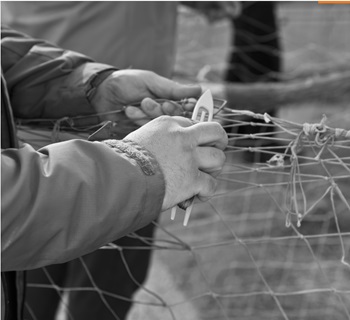 The man and the sea… a hard life, a very hard (and dangerous) work. And sometimes a day of work gives only a couple of tens of euros. These images show the end of the night of fishing in the sea, when the fishermen are in the harbour, and they are preparing the fish for the markets or are cleaning their boats after the work. There is not much time for rest; it’s already late, it’s nine o’clock in the morning. And the fisherman has to clean the boat, to repair the nets and to sleep at least a few hours before another night of work in the sea. >>click to view<< 10 great images! 13:02
The man and the sea… a hard life, a very hard (and dangerous) work. And sometimes a day of work gives only a couple of tens of euros. These images show the end of the night of fishing in the sea, when the fishermen are in the harbour, and they are preparing the fish for the markets or are cleaning their boats after the work. There is not much time for rest; it’s already late, it’s nine o’clock in the morning. And the fisherman has to clean the boat, to repair the nets and to sleep at least a few hours before another night of work in the sea. >>click to view<< 10 great images! 13:02
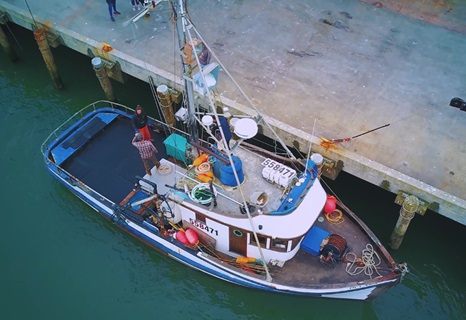
Reopening Areas for Groundfish Fishing After 20 Years
NOAA Fisheries has published regulation changes that will open fishing areas that have been closed for over 20 years. These areas were originally closed in the early 2000s to protect several species of overfished rockfish. With the rebuilt status of almost all these groundfish species, these closures can slowly be opened and allow fishermen greater access to catch healthy fish stocks. The regulations will also close some small areas to protect groundfish habitat, yelloweye rockfish (a species that is still rebuilding), and sensitive areas with abundant coral. These regulation changes are effective on January 1, 2024. Groundfish on the West Coast encompass over 90 species sharing one important trait: at some point in their life, they live on or near the ocean floor. Groundfish are a crucial part of West Coast underwater environments. They act as both predator and prey to different species and help maintain balance in underwater food chains. photos, charts, info, >>click to read<< 11:10
Fish house keeps fresh fish on the table
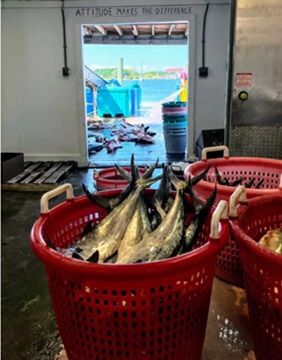 Every day, the Ocracoke Seafood Company sends about 4,500 pounds of locally caught fish off to places beyond. Sometimes Shane Mason gets up at 3 a.m. to drive the refrigerated truck on a four-plus-hour run to drop off the previous day’s catch to Jeffrey’s in Hatteras. Monday, Wednesday and Friday are big market days, he said while icing down fish brought in by one of several local commercial fishermen, packing them into boxes and loading them onto pallets. From Jeffrey’s, the Ocracoke catch goes all over, especially to New York and overseas. Locally, restaurants and individuals can partake in that bounty by purchasing fish and shellfish in the retail area of Ocracoke’s “fish house,” as it is known. This operation is helping to keep the island’s few commercial fishermen working and there’s been a renewed interest by the fishermen and the community to revitalize the business, said Stevie Wilson, vice-president of the board of directors. Photos, >>click to read<< 19:04
Every day, the Ocracoke Seafood Company sends about 4,500 pounds of locally caught fish off to places beyond. Sometimes Shane Mason gets up at 3 a.m. to drive the refrigerated truck on a four-plus-hour run to drop off the previous day’s catch to Jeffrey’s in Hatteras. Monday, Wednesday and Friday are big market days, he said while icing down fish brought in by one of several local commercial fishermen, packing them into boxes and loading them onto pallets. From Jeffrey’s, the Ocracoke catch goes all over, especially to New York and overseas. Locally, restaurants and individuals can partake in that bounty by purchasing fish and shellfish in the retail area of Ocracoke’s “fish house,” as it is known. This operation is helping to keep the island’s few commercial fishermen working and there’s been a renewed interest by the fishermen and the community to revitalize the business, said Stevie Wilson, vice-president of the board of directors. Photos, >>click to read<< 19:04
Fish and Game Commission Suspends and Terminates Fishing Privileges for Two Southern California Commercial Lobster Fishermen
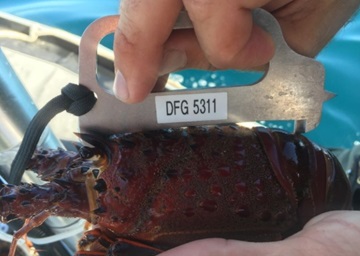 During its Oct. 12 meeting, the California Fish and Game Commission adopted recommendations from the California Department of Fish and Wildlife (CDFW) to revoke the commercial fishing licenses of two Southern California commercial fishermen, Michael Volaski and Arthur Esparza. CDFW recommended a five-year suspension of Volaski’s lobster operator permit and commercial fishing license. Volaski is a commercial lobster fisherman from Oxnard. The revocation stems from a three-day hearing in front of an administrative law judge who listened to testimony from Volaski and CDFW regarding Volaski’s history of violations in the lobster fishery. >>click to read<< 09:53
During its Oct. 12 meeting, the California Fish and Game Commission adopted recommendations from the California Department of Fish and Wildlife (CDFW) to revoke the commercial fishing licenses of two Southern California commercial fishermen, Michael Volaski and Arthur Esparza. CDFW recommended a five-year suspension of Volaski’s lobster operator permit and commercial fishing license. Volaski is a commercial lobster fisherman from Oxnard. The revocation stems from a three-day hearing in front of an administrative law judge who listened to testimony from Volaski and CDFW regarding Volaski’s history of violations in the lobster fishery. >>click to read<< 09:53
Scotland fishing: Inshore limit called for following HPMA debacle
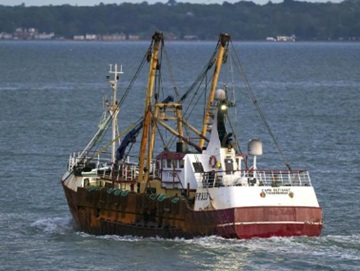 An open letter written by a commercial fisherman has called for restrictions to curb more damaging forms of fishing in inshore waters. Alistair Philp, National Coordinator of the Scottish Creel Fishermen’s Federation, writes: “Now that the threat of the poorly thought-out Highly Protected Marine Area (HPMA) proposals has passed, it is time to have a sensible debate about the alternative options.” The letter issued on behalf of the Our Seas coalition, which includes a wide range of coastal organisations, describes a need to “reverse the decades of mismanagement that has already hollowed out much of our inshore fishing industry.” It argues for the reinstatement of an inshore limit akin to or like the historic Inshore limit called for – designed to preserve fish nursery and spawning grounds – such as was in place until 1984. >>click to read<< 14:01
An open letter written by a commercial fisherman has called for restrictions to curb more damaging forms of fishing in inshore waters. Alistair Philp, National Coordinator of the Scottish Creel Fishermen’s Federation, writes: “Now that the threat of the poorly thought-out Highly Protected Marine Area (HPMA) proposals has passed, it is time to have a sensible debate about the alternative options.” The letter issued on behalf of the Our Seas coalition, which includes a wide range of coastal organisations, describes a need to “reverse the decades of mismanagement that has already hollowed out much of our inshore fishing industry.” It argues for the reinstatement of an inshore limit akin to or like the historic Inshore limit called for – designed to preserve fish nursery and spawning grounds – such as was in place until 1984. >>click to read<< 14:01
Survival and grief: The story of the Ross Cleveland tragedy
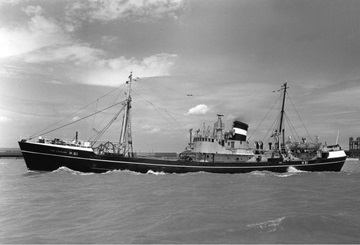 Fifty-five years ago last month the public inquiry into the loss of the Hull trawler Ross Cleveland and the deaths of 18 men began at Hull City Hall. It was the last time Harry Eddom ever spoke publicly about how he survived the disaster that claimed the lives of the rest of the ship’s crew eight months earlier. During the three-week inquiry, his dramatic witness testimony was only rivalled by evidence given by Len Whur, skipper of another Hull trawler Kingston Andalusite, the nearest vessel to the Ross Cleveland at the time of the tragedy. Whur was desperately trying to save his own ship after being caught in the worst storm experienced off the north-west Icelandic coast in living memory when he received a radio message from his cousin Phil Gay, skipper of the Ross Cleveland. Photos, >>click to read<< 08:26
Fifty-five years ago last month the public inquiry into the loss of the Hull trawler Ross Cleveland and the deaths of 18 men began at Hull City Hall. It was the last time Harry Eddom ever spoke publicly about how he survived the disaster that claimed the lives of the rest of the ship’s crew eight months earlier. During the three-week inquiry, his dramatic witness testimony was only rivalled by evidence given by Len Whur, skipper of another Hull trawler Kingston Andalusite, the nearest vessel to the Ross Cleveland at the time of the tragedy. Whur was desperately trying to save his own ship after being caught in the worst storm experienced off the north-west Icelandic coast in living memory when he received a radio message from his cousin Phil Gay, skipper of the Ross Cleveland. Photos, >>click to read<< 08:26
Mr Fisher: Taking viewers on a real time ride on a fishing vessel
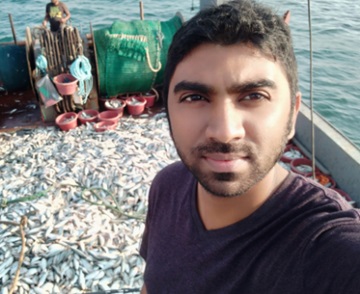 Md Jahidur Rahman, a fishing boat skipper, has been sharing videos of fishing operations in the Bay of Bengal for some time now, and one can watch the everyday life of our sea-going fishers aboard the trawlers, as well as many other tiny details of thsharing videose business. While wooden fishing boats are common along the coastline of the country, industrial fishing vessels fitted with modern equipment are only seen in the Chattogram area. As a result, the videos of the boats operating in the sea have drawn the attention of viewers. Jahid says it is the main goal of his vlogging. “The goal of the videos is to let people know about our marine fishing industry: how we use the latest fishing equipment on modern fishing vessels, which people have only seen on television,” said Jahid. photos, >>click to read<< 12:44
Md Jahidur Rahman, a fishing boat skipper, has been sharing videos of fishing operations in the Bay of Bengal for some time now, and one can watch the everyday life of our sea-going fishers aboard the trawlers, as well as many other tiny details of thsharing videose business. While wooden fishing boats are common along the coastline of the country, industrial fishing vessels fitted with modern equipment are only seen in the Chattogram area. As a result, the videos of the boats operating in the sea have drawn the attention of viewers. Jahid says it is the main goal of his vlogging. “The goal of the videos is to let people know about our marine fishing industry: how we use the latest fishing equipment on modern fishing vessels, which people have only seen on television,” said Jahid. photos, >>click to read<< 12:44






